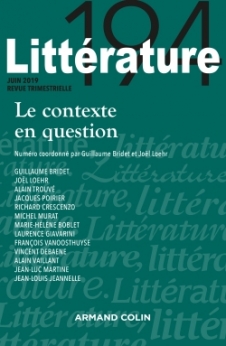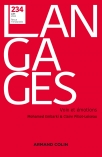
Littérature nº194 (2/2019)
Pour acheter ce numéro, contactez-nous
Recevez les numéros de l'année en cours et accédez à l'intégralité des articles en ligne.
Dans sa lettre d’avril 1888 à l’écrivaine socialiste Margaret Harkness, En-gels l’incite à lire Balzac, romancier engagé dans le camp légitimiste et catholique, dont il affirme qu’il a écrit « l’histoire la plus merveilleusement réaliste de la société française ». Venant d’Engels, cette affirmation est para-doxale, dans la mesure où aucun aspect de La Comédie humaine ne permet de comprendre l’émergence du prolétariat urbain comme force politique au XIXe siècle, ni par conséquent le contexte révolutionnaire dont Engels et Margaret Harkness sont eux-mêmes issus.
In his April 1888 letter to the socialist female writer Margaret Harkness, En-gels incites her to read Balzac, a novelist committed to the legitimist catholic camp, of whom he asserts he has written « the most marvellously realistic history of French society ». From Engels, this assertion is paradoxical, in so far as no aspect of La Comédie humaine allows to understand the emergence of the urban proletariat as a political force in the 19th century, nor conse-quently the revolutionary context which Engels and Margaret Harkness are themselves coming from.

